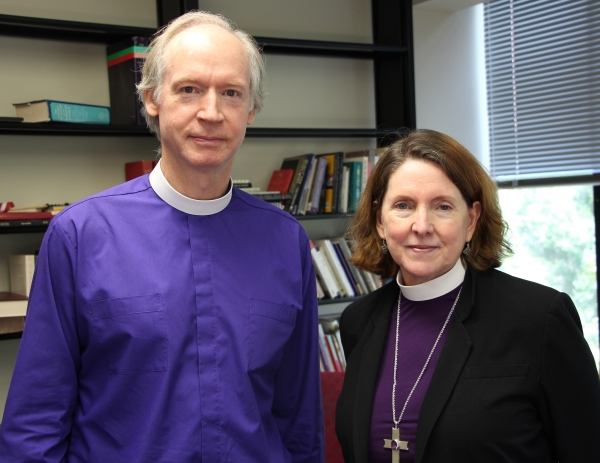Bishops of the Diocese of North Carolina Share Thoughts on Upcoming Supreme Court Decision and Recent Legislation

Dear Beloved of God,
The weight of these times is heavy as we grapple with questions of life and death, and the dignity, integrity and agency within the community of the baptized, as well as with respecting the dignity, integrity and agency of those with a different framework for making crucial and deeply personal life decisions.
The United States is a pluralistic society where citizens strive to identify a common ground of well-being for a multifaith, multiethnic, multicultural population. In a pluralistic society where we enjoy and protect religious freedom, we agree to protect the rights of those religious beliefs different from our own.
For the last few weeks, we have wrestled with what, if anything, we wanted to contribute to the current conversation surrounding the upcoming decision on whether Roe vs. Wade will be upheld. We were reluctant to comment on a leaked document of a draft decision from the Supreme Court, and if the current situation involved only a leaked draft, that reluctance may have held. But along with the concerns prompted by the draft contents, we are deeply disturbed by recently approved and proposed legislative actions being put forth in several states that carry with them life-altering consequences and the reduction of women’s choices when it comes to their own health.
The Episcopal Church’s positions on termination of a pregnancy generally, and consistently for more than six decades, have sought to balance attention on the pastoral need to support a woman facing a problematic pregnancy with the church’s historical understanding that life is sacred from conception.
At the 65th General Convention in 1976, Resolution 1976-D095 was passed reaffirming the Church’s 1967 statement on abortion. It recognized the sanctity of life, while also acknowledging there were situations where a woman, or parents together, might choose to terminate a pregnancy.
This was followed by Resolution 1988-C047 at the 69th General Convention in 1988 which included this language: “All human life is sacred, it is sacred from its inception until death.” It went on to say: “We regard all abortion as having a tragic dimension, calling for the concern and compassion of all the Christian community.”
That resolution, however, concludes by questioning the effectiveness of legislative solutions, and it calls on state and federal governments to “take special care to see that individual conscience is respected, and that the responsibility of individuals to reach informed decisions in this matter is acknowledged and honored.”
In the 71st General Convention’s Resolution 1994-A054, the “Episcopal Church express[es] its unequivocal opposition to any legislative, executive or judicial action on the part of local, state or national governments that abridges the right of a woman to reach an informed decision … or that would limit the access of a woman to safe means of acting on her decision.”
Most recently, Resolution 2018-D032 was passed at the 79th General Convention in 2018. Among the points included, that resolution stated “equitable access to women’s health care, including women’s reproductive health care, is an integral part of a woman’s struggle to assert her dignity and worth as a human being,” and called for advocacy “for everyone to have the right to make decisions about their bodies and those decisions should be between themselves and their provider.”
As your bishops, we affirm these resolutions and their intention to balance the historic teachings of the Church and a pastoral response to complicated personal circumstances.
We encourage members of our churches to prayerfully seek God’s guidance and wisdom in discerning how to proceed in any particular pastoral situation that may arise or personal decision to be made. We do not condone legislation that would override the exercise of conscience and the agency of those persons who are facing profound and heartbreaking choices. Nor do we condone legislation that seeks to criminalize or penalize those faced with making such choices and those who support them. We join with millions of other Christians as well as other Americans in the hope and prayer that the justices of the Supreme Court will respect decades of careful, thoughtful jurisprudence and step back from actions that will, we believe, actually harm and maybe even cost the lives of many. And we ask all to remember that no matter what the decision, it is going to be a source of pain for many, and it is our call, no matter if we agree or disagree with those in pain, to respond pastorally, with compassion and with love.
